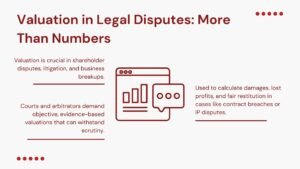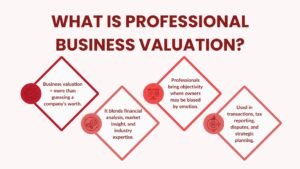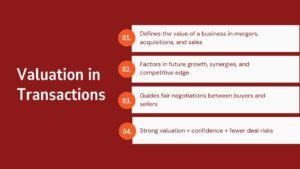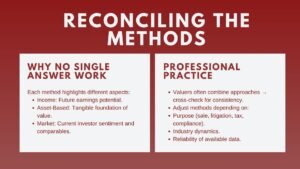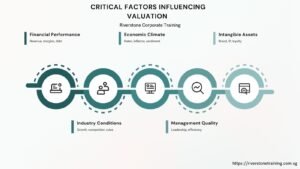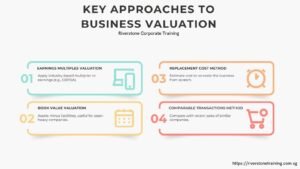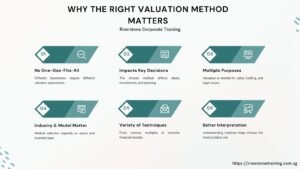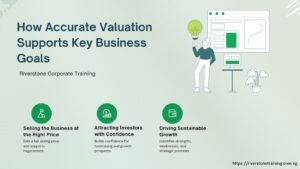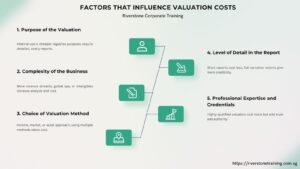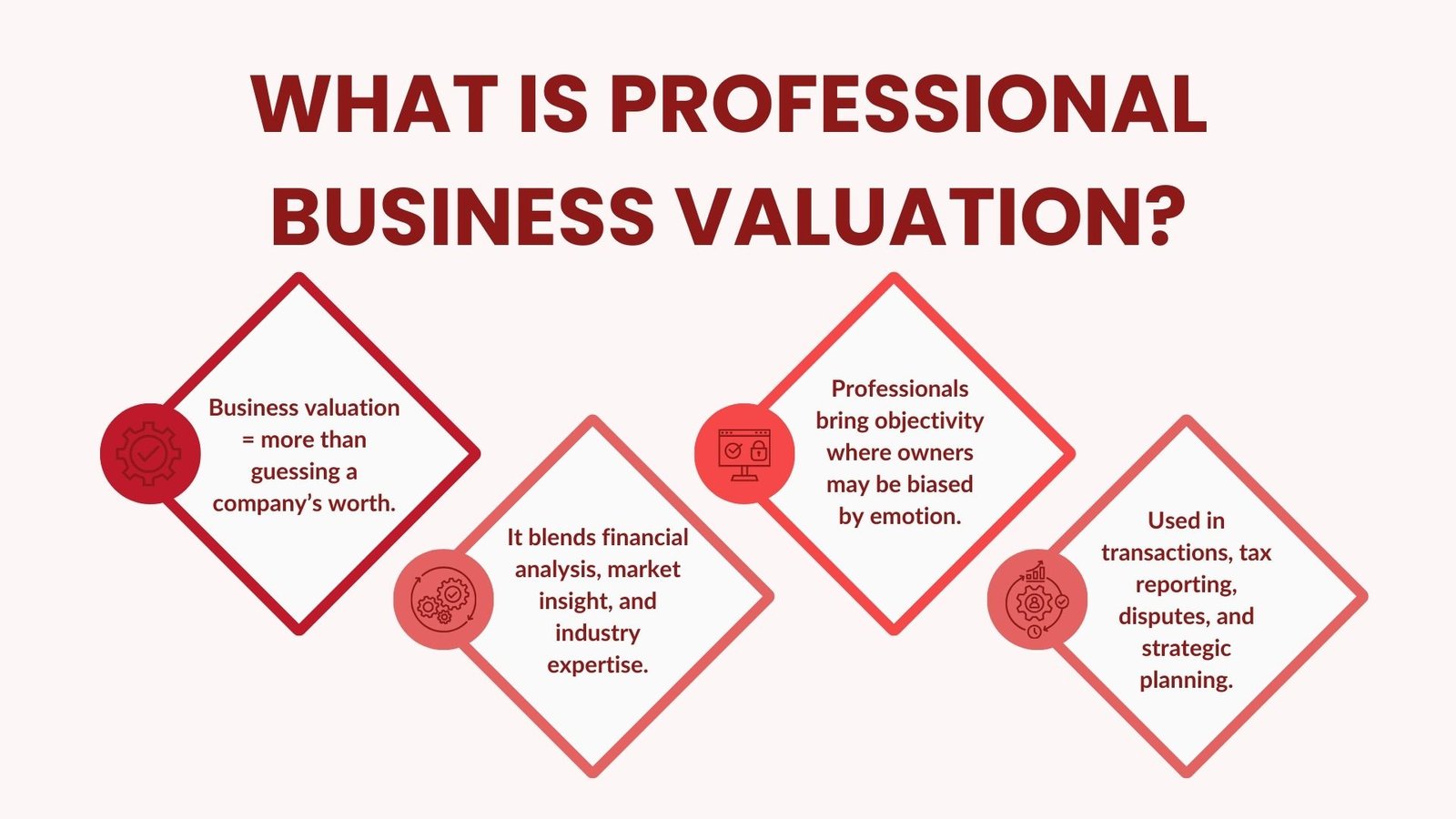
Expert Business Valuation in Singapore
Expert Business Valuation in Singapore
Understanding Expert Business Valuation
Business valuation is the study of the economic value of a company, which may be required to support transactions, tax reporting, disputes or strategic planning. Professional valuation is much more than estimation since many business owners already have a gist of what their company is worth. It is an organized way connected with financial analysis, believing in the market, and industry competence.
Major business valuation professionals add a level of objectivity and technical expertise to what might be otherwise tempered by emotion or prejudice. Learning what professional valuation is, why it is needed, and how to use it in various situations can benefit a business owner and all its stakeholders as it will provide them with the opportunity to focus on informed decision-making.
Challenges and Limitations in Business Valuation
Although professional valuation provides a sense of order, clarity and defensibility, it also has its burning issues. Among the most pronounced weaknesses is the fact that they are based on assumptions and projections. Future earnings estimates, discount rates, and comparables to the market are all factors frequently used by valuation professionals, but all of them introduce a certain level of uncertainty. That is, the economy and regulations, as well as technology, can change very suddenly, destabilizing even well-thought-out projections. This creates risk particularly in an industry that is subjective to high volatility like technology or energy.
The other problem lies in the availability and quality of information. Small or privately held enterprises do not have consistent bookkeeping or standardized reporting habits This complicates the use of some valuation approaches with the same degree of precision as that of publicly-traded firms with audited reporting. Professionals may have to overcome challenges by undertaking interviews, reading management reports and judgment, all of which although professional, are subject to questioning should results be disputed.
There may be limitations even in the valuers who should know how to be objective, based on bias. Less obvious influences by the interested parties, particularly in the cases of litigation or stockholder conflicts may seek to influence the assumptions or procedures. The specifics of being a professional require having emphasized independence, but the possibility of perceived bias must lead to practices of documentation and transparency.
Finally, financial and time constraint is possible. Valuations that are of high quality are costly to implement, as a lot of data is to be gathered, analysed, and reported. Smaller businesses may fret over the cost of professional valuation, which can be quite heavy even though it can save them more potential costs later on. It is important that business owners and those involved with the stakeholder understand these limitations so that they can apply valuation inputs intelligently- weaving between their belief in the findings and the consideration of the assumptions and limitations made.
The Strategic Benefits of Embracing Professional Valuation
But professional business valuation is an essential strategic advantage looking forward even in a down economy. To begin with, it enables the business owners to understand where their organisation stands and where it might be going. They do not have to trust in some informal estimates but have defensible figure that is backed by methodology and data in the market as well as expert opinion. This will enable them to pre-plan such drive with confidence as the assumptions that drive the estimate have been stress-tested.
Valuation also enhances accountability to the external stakeholders. Investors, lenders, regulators and even employees are likely to be comfortable with the future of a company when its financial position is evaluated by third party professionals. Such credibility is able to enhance access to capital, easier negotiations, and adherence to the regulatory requirements. It offers a solid basis that can be respected by a court or conflicting parties in the context of high stakes, e.g. mergers or disputes.
Besides, professional assessment can be useful in detecting unknown assets or threats in a business. As an example, a firm can underestimate its intangible assets in terms of intellectual property or customer relations until the time when these are scrutinized through valuation assessment. On the other hand, the threats which include over dependence on a single customer and holding aged assets could be evident only in a systematic way. This understanding is very helpful in helping the owners undertake forward thinking actions, and be ahead of issues that may arise.
On a greater scale, introduction of professional valuation creates a culture of transparency and accountability. It demonstrates that leaders place importance on data-driven decision making as opposed to speculation and gut feeling. This lays strong governance, instills confidence in the investors, and improves the image of the company in the markets that are competitive.
Finally, valuation is frequently referred to in a context of transactions or litigation, but the strategic impact of valuation is using it to enable businesses to thrive in the new reality of uncertainty and opportunity. Stating the true value of the companies, based on objective analysis and professional judgment, the companies can identify what their strategies should be in order to provide stability and achieve lasting growth.
The Role of Professional Valuation Experts
Valuation professionals are the professionals that specialize in valuation of businesses based on well known valuation methodologies and practices within the industry. Their performance is also based on technical expertise, ethical standards and compliance to regulation. They analyze cash flow, appetite, financial statements, market trends, level of operating performance and intangibles like brand name or customer loyalty. Depending on jurisdiction, the competency to practice as a professional valuer may be subject to requirements that include reference to such frameworks as the International Valuation Standards (IVS), Generally Accepted Accounting Principles (GAAP), or the International Financial Reporting Standards (IFRS).
The purpose of a valuation expert does not consist solely in calculating a number, but also in giving reasons why thinking that there is a number. They give elaborate reports in which methods employed, assumptions and the evidence on which they base their conclusions are given. Such a degree of transparency is such that the valuation would stand up under the challenge of the buyers, the sellers, the regulators, the courts, or auditors. To the business owner, hiring a professional is getting qualified and defending the analysis of value which in the high-stake scenarios such as mergers, acquisition or succession by shareholders, the determination is vital.
When Professional Valuation Becomes Critical
Not all operational decisions of a business entail a formal valuation, although some require the input of a professional. Such a common situation occurs when selling or buying a company. Both purchasers and sales have a practical sense of value in order to negotiate and not to overpay or undersell. Again, in investment rounds, when venture capital or the like funds evaluate the start-up or even a later-stage company, valuations play a pivotal role.
Tax and financial reporting also requires valuation. Regulatory agencies tend to demand businesses report the fair value of some assets or liabilities especially following acquisitions. In valuation, estate planning and inheritance, value sets the amount of taxes to be paid on shares transferred. Valuation expertise is also important where there is litigation. Cases that involve shareholder conflicts, divorce settlements where one or both spouses own business, or an instance of expropriation, courts use the service of valuation professionals to present fair decisions. Moreover, valuation services are critical in the initiation of employee stock ownership plans (ESOPs) schemes since the share price directly influences staff remunerations.
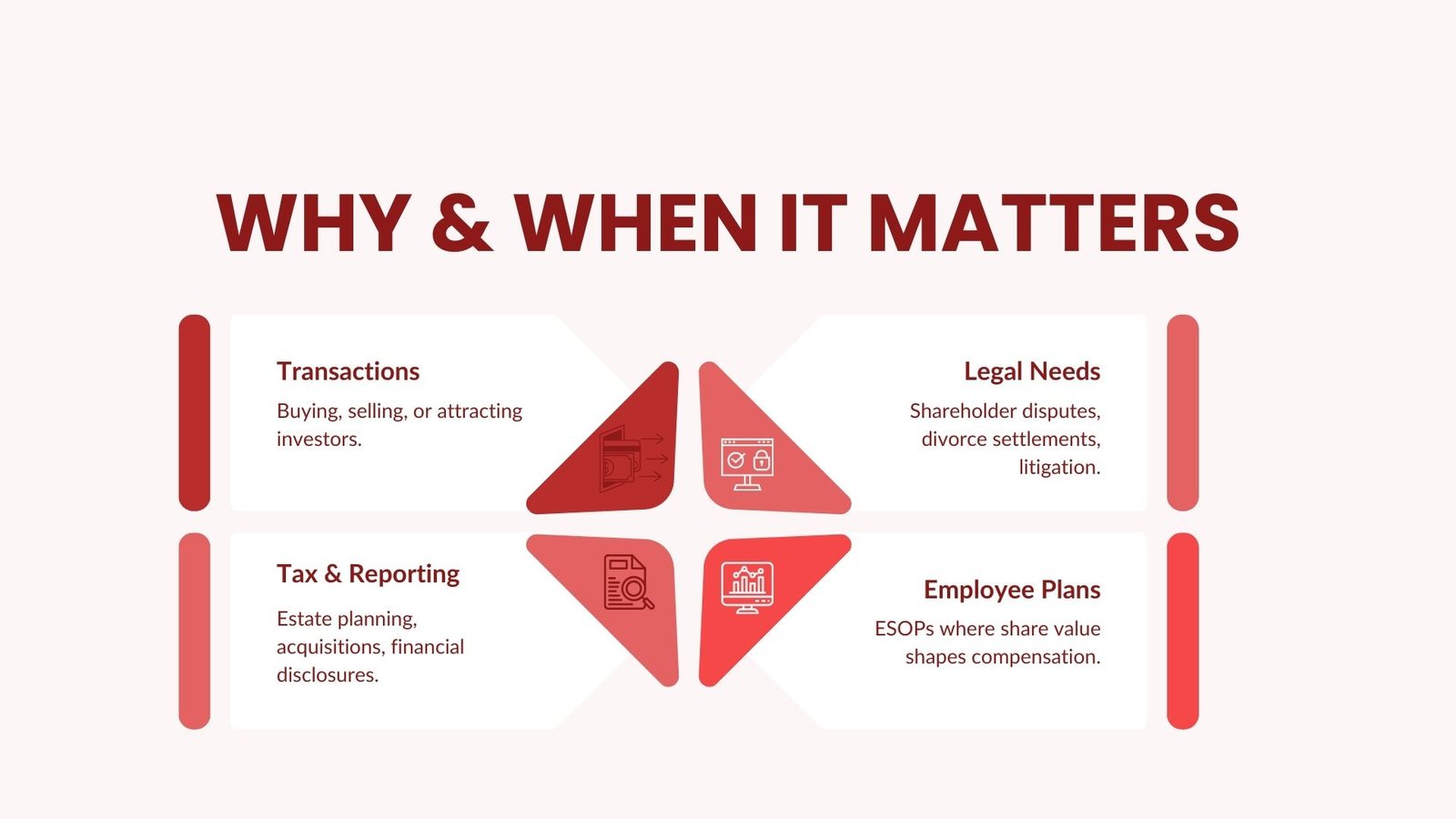
The Methodologies Behind Professional Valuation
Selecting and using established valuation systems cleverly is a characteristic of valuation skills. The market approach, the income approach, and the asset-based approach are the three main directions that prevail in the sphere. The different methods have specific advantages and are selected depending on the type of business or the use of the valuation and the accessibility with valid information.
The market method involves the comparison of companies with the other similar companies that have been sold off or listed. The strategy depends much upon the market statistics and can be employed whenever there is an active market of similar companies. Income method is a method of valuation of a business on the basis of its capacity to earn, in future, through discounted cash flow analysis where a present value is estimated. It is especially applicable in companies that have rather stable earnings and growth patterns. Asset based approach, however, assigns values on the net worth of the assets and liabilities of a company. This is usually used with asset-intensive enterprises or liquidators.
Because of the variety of methods and method differences, professional valuers tend to combine these approaches or apply alternatives in order to obtain a clearer image. They also adjust themselves to issues like volatility in markets, competitive positioning, property value in intellectual category and State of the economy.
The Importance of Independence and Objectivity
Independence is one of the distinguishing characteristics of the professional skill of business valuation. Valuation professionals should keep themselves above the fray by avoiding situations of conflict that would undermine their results. The personal expectations and emotional investment in the house by an owner who performs self-analysis greatly contributes to the over- or under-valuing of the properties. The professional valuers are able to offer an objective view which is evidenced, and hence the result is credible to both parties.
Objectivity is of special concern to situations of controversy. As a case in point, in the issue of a shareholder, each party may hold conflicting views about the value of the business. By having an independent professional carry out valuation, one can have an objective reference which decreases the chances of a running battle. In a similar fashion, when merging or acquiring a company it becomes easier to have a second party be more assured of the fairness of the deal when a respected professional has affirmatively tested the price.
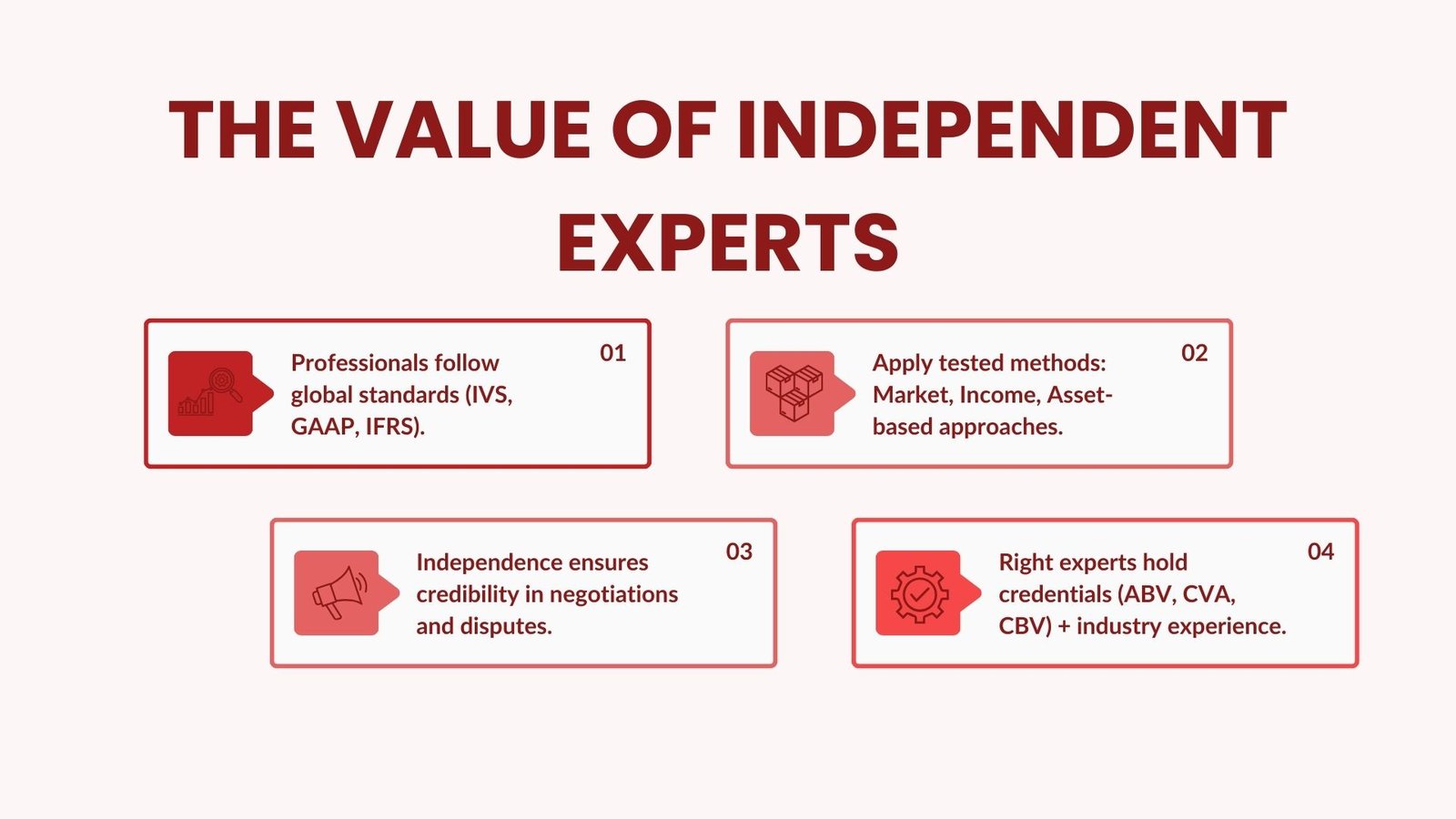
Selecting the Right Valuation Expert
It is important to select a competent valuation expert to come up with a credible value. Such aspects as credentials, experience in the industry, and knowledge of the pertinent regulatory system should be taken into account. Among professional valuers, there are many with certifications including understanding Accredited in Business Valuation (ABV), Certified Valuation Analyst (CVA) or Chartered Business Valuator (CBV). These qualifications point to the fact that the professional has received a thorough training, is ethical and continues to develop professionally.
The experience of the industry is no less important. An experienced valuer will be more familiar with the particularities of the value drivers that are peculiar to a certain industry. Take the case of valuation of a technology startup and valuation of a manufacturing company one would make different considerations. Another positive quality would be the capacity to report the findings articulately since stakeholders should not only be informed about the end valuation figure but also the rationale and substantiation behind it.
Final Thoughts on Professional Business Valuation
The goal of professional business valuation expertise is not merely arriving at a number, but to achieve clarity, transparency and defensibility in the most important contexts in which value sets the terms of the game. Regardless of whether that need is to make a transaction, resolve a legal claim, report under a taxing regime, or develop a strategic plan, retention of an experienced valuation professional assures a client that their actions will be based on evidence and not speculation.
The process offers both an analytical rigor and industry knowledge to mix advancing a reliability that can be believed by every concerned stakeholder. This experience is a crucial asset in the modern business world that becomes more complicated, and any person with the desire to realize the actual value of the company should possess this knowledge.



